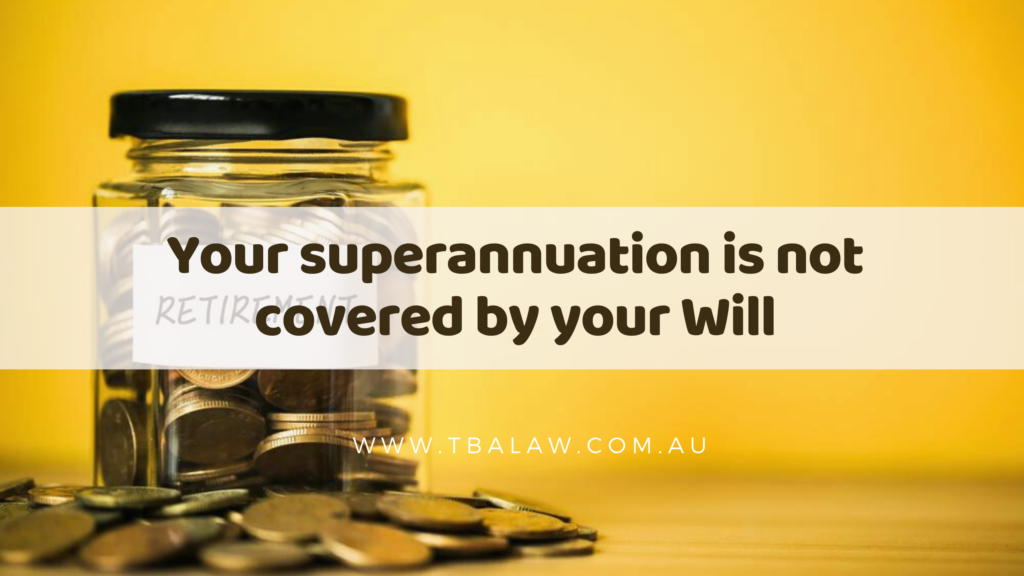Your superannuation is not covered by your Will.
5 things to know about super and how to make sure it is paid to your loved ones
Types of superannuation
From an estate planning perspective, there are 3 types of super funds, 2 types of super, and 2 phases of super.
The 3 type of super fund are:
- industry funds (lower fees, usually)
- retail funds (AMP, big banks, and those only financial planners can access),l and
- self-managed superannuation
The 2 types of super are:
- defined benefit – a special type of fund where you can’t take (all) your super as a lump sum, but only as a pension, and
- accumulation – this is just like a savings account where what you pay in adds up, and is yours to take as a lump sum or reinvest for a pension when you’re retired. The majority of super funds are accumulation funds.
The 2 phases of super are:
- accumulated phase – while you’re working and too young, and
- pension phase – after you retire, and you decide not to take the lump sum but leave the amount invested in super, taking a pension instead.

What is your death benefit?
Your death benefit is usually the lump sum that is paid out when you die. This includes what you have accumulated, plus any life insurance that you have in your superannuation. It is all paid as one lump sum.
Defined benefits funds are a special type, though. If there’s any that can be taken as a lump sum, this is paid, but your spouse is the only person entitled to a pension off your fund. Once your spouse dies, there is nothing more paid.
Who can your superannuation be paid to after your die?
Superannuation can only be paid to what the Regulations call ‘superannuation dependants’. These are a spouse, children, step-children, or someone who is financially dependant on you. So the categories of people are limited.
You cannot pay your superannuation directly to your parents, siblings, nephews and nieces or anyone other than the categories above.
If you don’t have any of these people, your superannuation must still be paid out. So the super fund will pay it into your estate (so then your Will will cover it).
What is a binding death benefit nomination?
You can tell your super fund who you want your death benefit to be paid to. This is done by a nomination form – you nominate your beneficiary.
Remember: you can only nominate a superannuation dependant (spouse, children, or financially dependant people). Or you can make a nomination that the super fund pay it to your estate.
If you use the right form, your nomination will be binding on your super fund, so they won’t have a choice. If your nomination is binding, the super fund MUST pay your superannuation as you have directed it to be paid.
If your nomination is not binding, then the super fund can make their own decision who to pay your superannuation to.
What do I need to do?
Every super fund has their own binding nomination form which you should be able to download from their website. Or you can contact them and get them to email it to you.
For a self-managed superannuation fund, you can usually make up your own form.
To be binding, you must nominate who you want your super to be paid to. Then sign and date the form. And have two witnesses also sign and date the form. Then return it to you super fund.
On some superannuation funds, the binding nomination will EXPIRE every 3 years. So you have to remember to keep doing the form to ensure it STAYS binding.





Leave A Comment